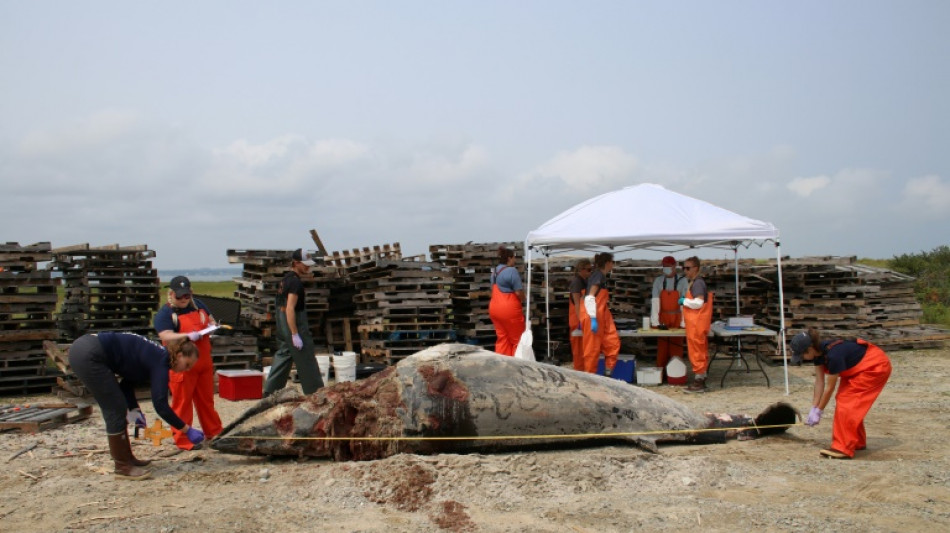
-
 Trump announces tariffs on Iran trade partners as protest toll rises
Trump announces tariffs on Iran trade partners as protest toll rises
-
Sabalenka favourite at Australian Open but faces Swiatek, US threats

-
 Gay Australian footballer Cavallo alleges former club was homophobic
Gay Australian footballer Cavallo alleges former club was homophobic
-
Trump has options on Iran, but first must define goal

-
 Paris FC's Ikone stuns PSG to knock out former club from French Cup
Paris FC's Ikone stuns PSG to knock out former club from French Cup
-
Australia's ambassador to US leaving post, marked by Trump rift

-
 Slot angered by 'weird' Szoboszlai error in Liverpool FA Cup win
Slot angered by 'weird' Szoboszlai error in Liverpool FA Cup win
-
Szoboszlai plays hero and villain in Liverpool's FA Cup win

-
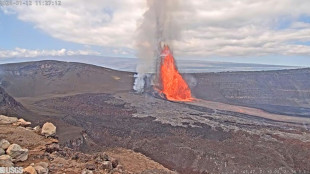 Hawaii's Kilauea volcano puts on spectacular lava display
Hawaii's Kilauea volcano puts on spectacular lava display
-
US stocks at records despite early losses on Fed independence angst

-
 Koepka rejoins PGA Tour under new rules for LIV players
Koepka rejoins PGA Tour under new rules for LIV players
-
Ex-France, Liverpool defender Sakho announces retirement

-
 Jerome Powell: The careful Fed chair standing firm against Trump
Jerome Powell: The careful Fed chair standing firm against Trump
-
France scrum-half Le Garrec likely to miss start of Six Nations

-
 AI helps fuel new era of medical self-testing
AI helps fuel new era of medical self-testing
-
Leaders of Japan and South Korea meet as China flexes muscles

-
 Trump sets meeting with Venezuelan opposition leader, Caracas under pressure
Trump sets meeting with Venezuelan opposition leader, Caracas under pressure
-
Australia captain Alyssa Healy to retire from cricket

-
 US 'screwed' if Supreme Court rules against tariffs: Trump
US 'screwed' if Supreme Court rules against tariffs: Trump
-
NATO, Greenland vow to boost Arctic security after Trump threats
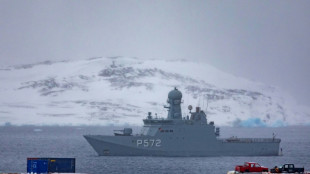
-
 Israel to take part in first Eurovision semi-final on May 12
Israel to take part in first Eurovision semi-final on May 12
-
How Alonso's dream Real Madrid return crumbled so quickly

-
 Ex-Fed chiefs, lawmakers slam US probe into Jerome Powell
Ex-Fed chiefs, lawmakers slam US probe into Jerome Powell
-
Former Panama leader on trial over mega Latin America corruption scandal

-
 Trump keeping Iran air strikes on the table: White House
Trump keeping Iran air strikes on the table: White House
-
Paramount sues in hostile bid to buy Warner Bros Discover

-
 Ugandan opposition leader Bobi Wine warns of protests if polls rigged
Ugandan opposition leader Bobi Wine warns of protests if polls rigged
-
Airbus delivers more planes in 2025

-
 Alonso leaves Real Madrid, Arbeloa appointed as coach
Alonso leaves Real Madrid, Arbeloa appointed as coach
-
UK pays 'substantial' compensation to Guantanamo inmate: lawyer
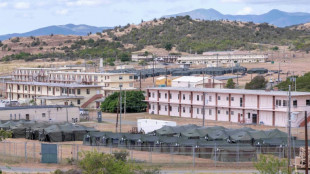
-
 Iran protest toll mounts as government stages mass rallies
Iran protest toll mounts as government stages mass rallies
-
Gold hits record high, dollar slides as US targets Fed

-
 Cuba denies being in talks with Trump on potential deal
Cuba denies being in talks with Trump on potential deal
-
Scientists reveal what drives homosexual behaviour in primates

-
 Venezuela releases more political prisoners as pressure builds
Venezuela releases more political prisoners as pressure builds
-
15,000 NY nurses stage largest-ever strike over conditions

-
 Rosenior plots long Chelsea stay as Arsenal loom
Rosenior plots long Chelsea stay as Arsenal loom
-
Zuckerberg names banker, ex-Trump advisor as Meta president

-
 Reza Pahlavi: Iran's ex-crown prince dreaming of homecoming
Reza Pahlavi: Iran's ex-crown prince dreaming of homecoming
-
Venezuela releases more political prisoners

-
 Kenya's NY marathon champ Albert Korir gets drug suspension
Kenya's NY marathon champ Albert Korir gets drug suspension
-
US prosecutors open probe of Fed chief, escalating Trump-Powell clash

-
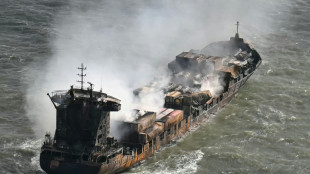 Russian captain in fiery North Sea crash faces UK trial
Russian captain in fiery North Sea crash faces UK trial
-
Carrick is frontrunner for interim Man Utd job: reports
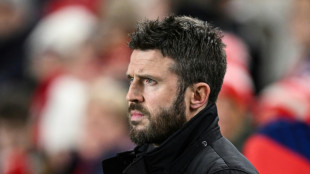
-
 Iran government stages mass rallies as alarm grows over protest toll
Iran government stages mass rallies as alarm grows over protest toll
-
Variawa leads South African charge over Dakar dunes
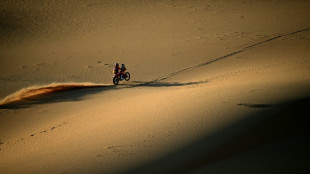
-
 Swiss inferno bar owner detained for three months
Swiss inferno bar owner detained for three months
-
Heathrow airport sees record high annual passenger numbers
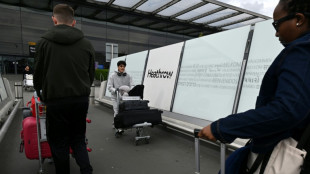
-
 Georgia jails ex-PM for five years amid ruling party oustings
Georgia jails ex-PM for five years amid ruling party oustings
-
Kyiv buries medic killed in Russian drone strike


On US coast, wind power foes embrace 'Save the Whales' argument
Whether from real concern for marine animals or doubts about renewable energy, the anti-wind power movement has been growing along the US East Coast, with some trying to blame a surge in whale strandings on the growth of offshore energy projects.
Their attempt to link the two seems to be resonating, despite what scientists say is a clear lack of evidence.
When Lauren Brandkamp and her team from the nonprofit Whale and Dolphin Conservation organization in Massachusetts carry out a rescue on an area beach, one of the first questions bystanders ask is: "Was this wind?"
Facebook groups vehemently opposing offshore wind projects have been growing, with some citing NIMBY (Not in My Back Yard) concerns, and others claiming that soaring wind turbines do real harm to sea creatures or the environment.
Wind power critics have organized coastal town gatherings, posted "Save the Whales" signs and filed lawsuits in a bid to bury new wind projects under crushing litigation fees.
A recent surge in whale strandings or deaths has given them added ammunition.
From coastal Virginia to Maine in the far northeast, the region has in fact witnessed unusual mortality among Atlantic Minke whales, Atlantic humpback whales and endangered North Atlantic right whales.
This has coincided with efforts by President Joe Biden's administration to ramp up offshore wind projects, curb emissions and encourage a shift to renewable energy.
The administration has approved 10 commercial-scale offshore projects since 2021. Three domestic offshore farms have been operating for several years, and three are under construction.
Yet scientists have found no evidence linking wind power to the deaths of large marine mammals.
They point instead to collisions with ships in crowded sea lanes, entanglements with fishing nets, and disease.
- 'Misplaced' concerns -
"I'm glad that there is such attention being paid now to whales, but it is a little bit misplaced," said Brandkamp, whose title with Whale and Dolphin Conservation is stranding coordinator.
Local residents and beachgoers, she said, are usually receptive to her team's conservation awareness talks during a rescue.
Online, however, the discourse is harsher, with "more hostility, more skepticism."
The US National Oceanic and Atmospheric Administration (NOAA) points to interactions with ships as the leading cause of strandings, stating that there are "no known links between large whale deaths and ongoing offshore wind activities."
Ashley Stokes, director of marine mammal conservation at Seacoast Science Center in Rye, New Hampshire, told AFP that despite extensive research, scientists have found no "evidence to show any linkage between the two."
"The leading factors found have been ship-strike, entanglement and infectious disease," she said.
- Construction noise -
Anti-wind activists and conspiracy theorists on social media contend that the noise of wind turbine construction can dangerously disorient whales -- which use sonar to orient themselves -- leading to strandings.
But scientists question that.
Douglas Nowacek is part of a $10.5 million research project commissioned by the US Energy Department to investigate "construction nuisance" -- including noise -- around offshore wind activities along the East Coast.
Nowacek said he has seen wind turbine installers using the pile-driving method -- repeatedly hammering steel or concrete piles into the seabed -- in proximity to whales and yet observed no "overt or obvious behaviors."
There was no "evidence whatsoever that any offshore wind activities have resulted in anything even approaching the mortality of oil," he said.
He said surveyors for the oil and gas industry use a tool called the seismic air gun, which is roughly 10,000 times louder than pile-driving.
Jenna Reynolds, director of Save Coastal Wildlife in New Jersey, told AFP that if offshore wind projects were "having an impact, there'd be some whistleblower somewhere around in Europe or Asia, saying, 'I've seen offshore wind do all this damage to whales, dolphins or seals.'"
Both Reynolds and Brandkamp pointed to shifts in marine ecosystems linked to warmer waters in recent decades -- with more species pushing northward into increasingly busy shipping areas.
"I am not pro- or anti-offshore wind," Reynolds said. But "I'm very concerned about global warming, because it is having a huge impact on coastal wildlife.
"I know that offshore wind is going to have impacts. Nothing is perfect. (But) I would rather have offshore wind than oil platforms out in the ocean."
P.AbuBaker--SF-PST



